🧾 BIS Certification for Lithium-Ion Batteries in India: Complete Guide for 2025
⚡ Introduction: Why BIS Certification Matters for Lithium-Ion Batteries
The demand for lithium-ion batteries in India is growing rapidly, driven by the electric vehicle (EV) boom and the expansion of energy storage systems (ESS). To ensure safety, reliability, and quality, the Bureau of Indian Standards (BIS) mandates BIS Certification under the Compulsory Registration Scheme (CRS).
BIS certification validates that batteries meet India’s strict safety and performance standards — protecting consumers and ensuring market trust.
In short: No lithium-ion battery can be legally sold in India without BIS registration.
🔍 What Is BIS Certification?
The Bureau of Indian Standards (BIS) operates under the Ministry of Consumer Affairs, Government of India, and oversees product safety across multiple categories, including electrical, electronics, and battery systems.
For lithium-ion batteries, the BIS certification is issued under IS 16046 (Part 1 and Part 2) standards, which align closely with IEC 62133-1 and IEC 62133-2.
These ensure:
- Safe design and cell structure
- Protection against thermal runaway
- Reliable charging and discharging
- Prevention of short-circuit or overvoltage damage
🔗 BIS Official Website Link: Official BIS Portal – Compulsory Registration Scheme
🧩 Why BIS Certification Is Important
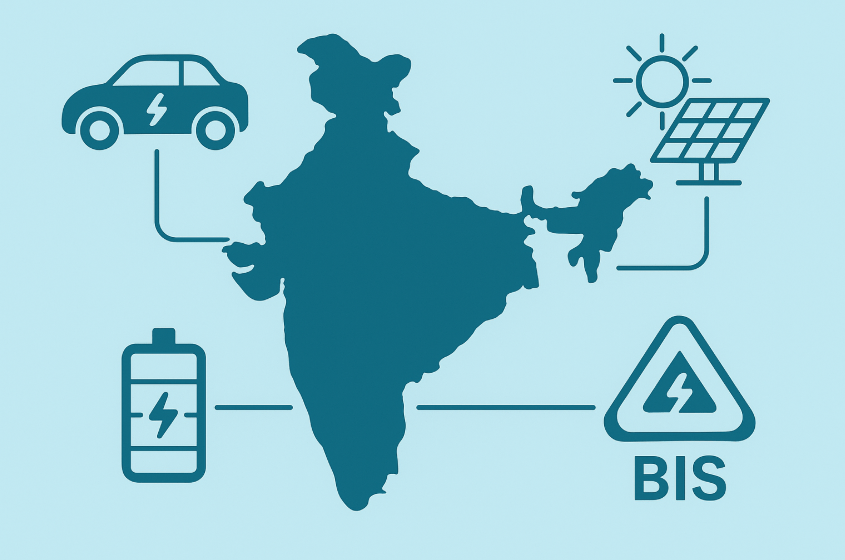
- Legal Compliance: Mandatory under the Electronics and IT Goods (Requirements for Compulsory Registration) Order.
- Safety Assurance: Prevents risks such as overheating, leakage, or fire.
- Market Access: Allows legal sales and distribution in India.
- Consumer Trust: Enhances brand credibility and acceptance.
- Export Advantage: Shows global buyers that Indian-made batteries meet rigorous standards.
🔗 Read More about UL Certifications for BESS: Learn more about UL Certifications for Battery Systems →
⚙️ Types of Batteries That Require BIS Certification
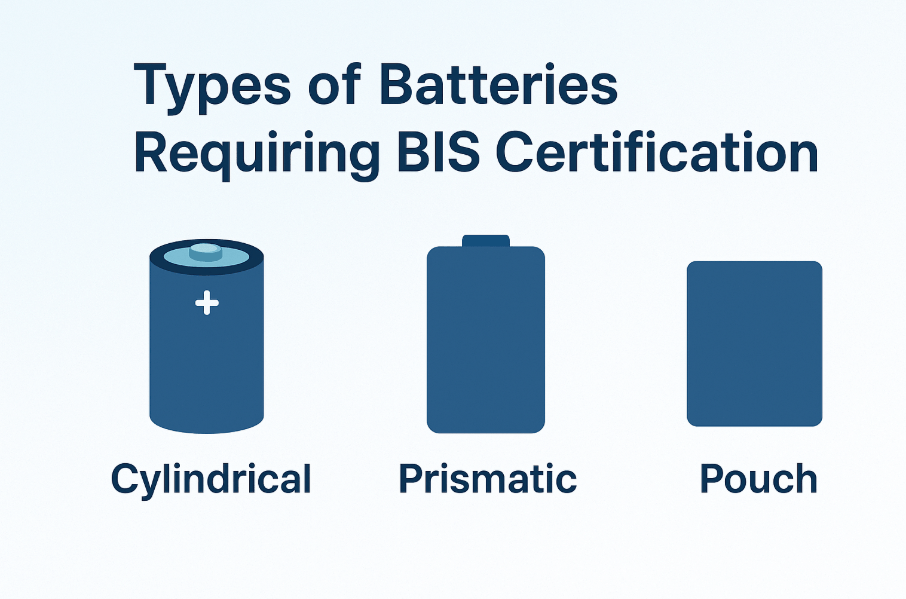
BIS certification applies to all lithium-ion batteries, including:
- Cylindrical cells
- Prismatic cells
- Pouch cells
- Battery packs used in EVs, solar storage, and portable electronics
Each type must undergo independent testing in a BIS-recognized laboratory.
🧾 BIS Certification Process for Lithium-Ion Batteries
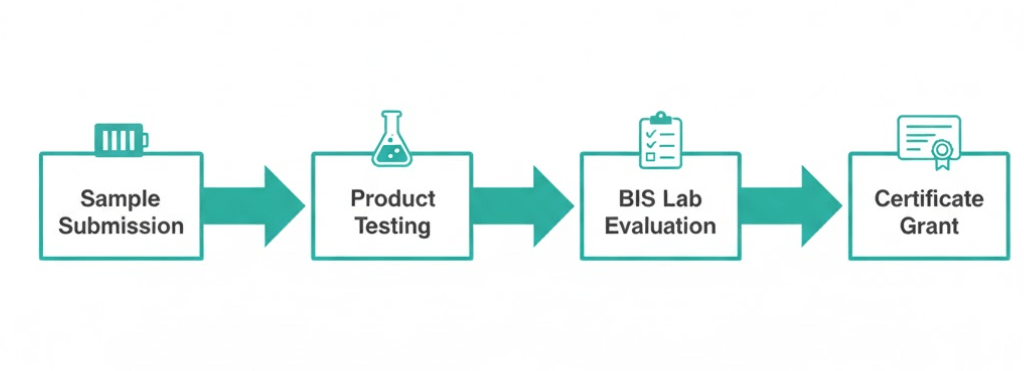
The process follows a clear and structured workflow:
- Product Testing: Submit battery samples to a BIS-recognized laboratory.
- Documentation: Provide technical specifications, test reports, and company details.
- Evaluation: BIS officers review compliance with IS 16046 and CRS requirements.
- Grant of License: Once approved, BIS issues a unique CRS number for your product.
- Ongoing Compliance: Regular audits and periodic sample re-testing ensure continued conformity.
🔗 BIS Official Website Link: BIS Laboratory Recognition Scheme
Who Needs BIS Certification in India?
BIS registration applies to:
- Indian manufacturers of lithium-ion cells or packs.
- Foreign manufacturers exporting batteries to India.
- Importers or brand owners selling products that include lithium cells (like e-bikes, ESS, or power banks).
Foreign manufacturers must appoint an Authorized Indian Representative (AIR) to manage their application.
You can learn about AIR responsibilities in the BIS Certification Process page.
Step-by-Step Process for BIS Registration
1. Identify the correct product category
Confirm your cell or pack falls under IS 16046 (Part 2): 2018.
2. Appoint an AIR (for foreign brands)
The AIR acts as the legal point of contact in India.
3. Send samples to a BIS-approved lab
Testing includes mechanical, electrical, and thermal safety tests.
4. Receive valid test reports
Reports older than the allowed period (commonly 90 days) are not accepted.
5. Submit the BIS online application
Upload your documents, test reports, and undertakings via the BIS Smart Registration portal.
6. BIS review and certification
The Bureau reviews, queries if necessary, and grants registration once approved.
The average BIS certification timeline ranges from 6 to 12 weeks, depending on test readiness and documentation accuracy.
Testing Requirements under IS 16046 (Part 2)
BIS mandates several tests to ensure safety and reliability:
- Overcharge and overdischarge tests
- Short-circuit and thermal abuse tests
- Vibration and mechanical shock tests
- Drop, crush, and impact evaluations
- Forced discharge and temperature cycling
Testing must be done at BIS-recognized Indian laboratories only.
See the CRSBIS recognized labs list for current approvals.
Validity, Renewal, and Modifications
A BIS registration typically remains valid for two years and can be renewed before expiry.
If your battery design, chemistry, or form factor changes, you may need inclusion or re-certification.
Always inform BIS of any updates to avoid suspension.
For guidance, consult BIS’s Product Certification FAQs.
Cost and Time Estimates
| Activity | Typical Duration | Cost Factors |
|---|---|---|
| Lab testing | 2–8 weeks | Sample complexity, lab backlog |
| Application & review | 2–6 weeks | Queries or re-submission |
| Renewal | Within 2 years | Administrative and testing fees |
Costs vary by product, testing scope, and chosen lab.
Budget for re-testing, document translation, and AIR service fees if applicable.
Quick BIS Application Checklist
- Verify your product under IS 16046 (Part 2): 2018
- Appoint an Authorized Indian Representative (if foreign)
- Prepare technical documents (schematics, BOM, manual)
- Send samples to a BIS-recognized lab
- Receive a valid test report (within validity window)
- Submit the online application via BIS portal
- Maintain labeling and traceability records
- Plan renewal at least 2 months before expiry
Benefits of BIS Certification
- Legal entry to the Indian market
- Enhanced brand reputation and safety credibility
- Easier access to EV, solar, and energy storage tenders
- Compliance with “Make in India” and safety mandates
- Consumer trust through verified performance
If your goal is to supply battery energy storage systems (BESS) or EV packs in India, BIS certification ensures your design meets national standards.
🔋 BIS vs UL Certification: What’s the Difference?
| Criteria | BIS (India) | UL (Global) |
|---|---|---|
| Authority | Bureau of Indian Standards | Underwriters Laboratories |
| Scope | Indian domestic market | International / export markets |
| Standard | IS 16046 (IEC 62133) | UL 2054, UL 2271, UL 2580 |
| Focus | Safety & legal compliance | Performance & export safety |
| Certification Need | Mandatory in India | Mandatory for exports & EVs |
🔗 Read more here: Compare UL 2054, UL 2271, and UL 2580 Certifications →
🧰 Common Challenges in BIS Certification
- Testing Delays: Due to limited BIS-recognized labs.
- Complex Documentation: Requires technical accuracy.
- Component Traceability: Imported cells must show source compliance.
- Frequent Standard Updates: IS 16046 revisions can impact timelines.
💡 Tip: Partnering with a certified integrator like SunLith Energy helps streamline compliance and ensure up-to-date certification.
⚡ BIS for EV, Solar, and Energy Storage Systems
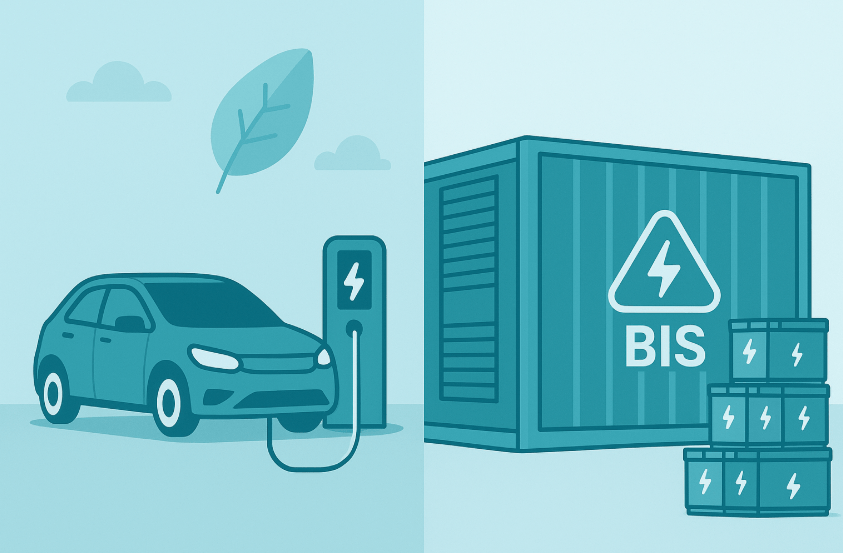
BIS certification isn’t limited to small devices — it’s equally crucial for EV batteries, solar storage units, and industrial battery systems.
SunLith Energy’s advanced BESS solutions comply with BIS and other global standards, ensuring safe and efficient operation across commercial and industrial applications.
🔗 Read more here: Explore SunLith Energy’s C&I Battery Energy Storage Systems →
🧠 Future of BIS Certification in India
The Government of India continues strengthening its battery standardization policies, aligning with global frameworks like UN 38.3 and ISO 9001:2015.
In coming years, expect:
- Expansion to cover solid-state and semi-solid lithium technologies.
- Integration with Battery Passport regulations for traceability.
- Stronger testing oversight for EV safety and fire resistance.
❓ FAQ: BIS Certification for Lithium-Ion Batteries
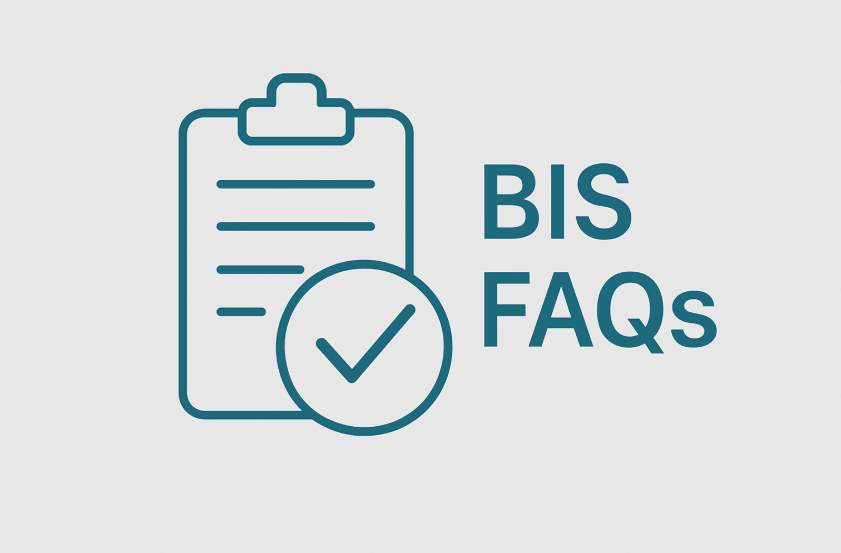
Q1. Is BIS certification mandatory for lithium-ion batteries?
✅ Yes. All lithium-ion cells and packs must be BIS-certified before sale in India.
Q2. How long does the BIS certification process take?
⏱️ Typically 1–4 months, depending on testing queue and document accuracy.
Q3. Can imported batteries be sold without BIS?
❌ No. Even imported batteries must register under CRS before being marketed in India.
Q4. Does BIS certification cover EV batteries?
✅ Yes. All electric vehicle battery packs must comply with BIS standards.
Q5. Can I use a foreign lab test report?
❌ No. BIS accepts test reports only from BIS-recognized labs in India.
Q6. What happens if my battery design changes?
Major design or chemistry changes require re-certification or inclusion.
Q6. Do I need BIS if my battery already has UL or IEC certification?
✅ Yes. Indian BIS registration is mandatory, even if you hold foreign safety marks.
Q7. How often must BIS be renewed?
Renew every two years or as defined in your certificate terms.
📈 Conclusion: Ensuring Battery Safety Through BIS
BIS certification is the foundation of battery safety in India. It not only ensures compliance but also builds trust among consumers, EV manufacturers, and energy solution providers.
At SunLith Energy, we support clients from design to compliance — including UL, BIS, and IEC certifications — to accelerate product launch with confidence.
By staying ahead with SunLith Energy’s BIS-compliant battery systems, your products remain reliable, future-ready, and globally competitive.
🔗 Visit: SunLith Energy – Advanced Battery Solutions for India →


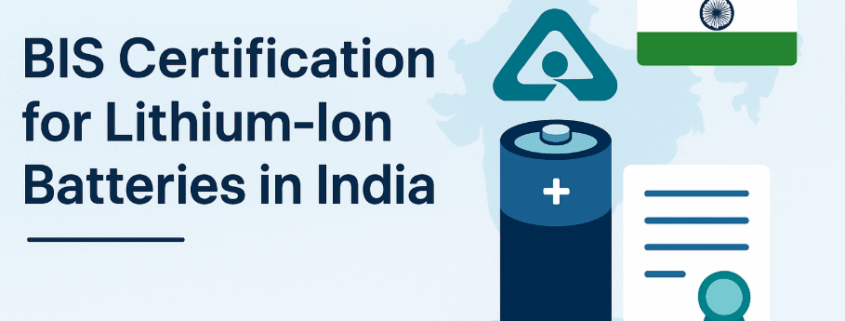
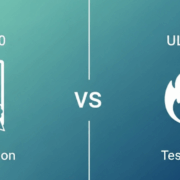
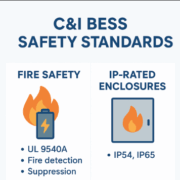


Trackbacks & Pingbacks
[…] BIS (India): Mandatory for lithium-ion cells and BESS units. […]
[…] India (BIS): BIS aligns many of its safety norms with IEC, especially for Li-ion storage. […]
[…] BIS Certification: IS 16046-1 / IS 16046-2 […]
[…] In India, the Bureau of Indian Standards (BIS) regulates battery and BESS imports and production. […]
Leave a Reply
Want to join the discussion?Feel free to contribute!